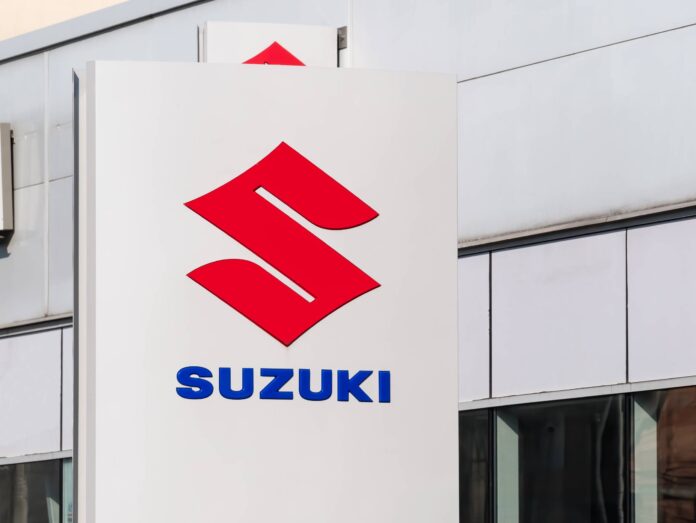Lahore, July 15, 2025 – Pak Suzuki Motor Company Limited (PSMCL) has issued a stark warning against the government’s proposed tariff reforms and liberalization of used car imports, calling the policy direction “unsustainable” and “potentially catastrophic” for Pakistan’s domestic auto industry.
The comments came during a press briefing in Lahore, where the companys Managing Director Hiroshi Kawamura led a detailed presentation on Suzuki’s footprint in Pakistan while senior company officials fielded wide-ranging questions from journalists on electric vehicles, localization, safety, pricing, quality, and future model plans.
“Imported used cars have already captured 25% of the market while local plants are running at 40% capacity,” said one official. “Further relaxation would deal a fatal blow to local manufacturing. No serious auto-producing nation allows this.”
Suzuki painted an apocalyptic picture of the effects of such a policy, warning that it could collapse the fragile local ecosystem including vendors, suppliers, dealers, and assembly lines and trigger a flood of job losses. Company executives denied rumors that such steps were being taken under IMF pressure, instead blaming the “used car import mafia” for lobbying to weaken the local industry.
“We’ve built this industry over four decades. Undoing it for a few short-term gains would be a historic mistake,” one senior executive added.
While Kawamura welcomed reductions in raw material tariffs as part of the National Tariff Policy 2025–30, he strongly opposed cuts to duties on finished goods like completely built-up (CBU) vehicles. He noted that Pakistan’s annual output of roughly 300,000 vehicles was still far below the 500,000 threshold needed to attain economies of scale — a requirement for attracting serious export and investment prospects.
“Australia’s auto industry vanished due to early liberalization,” said another Suzuki official. “We can’t afford to walk the same path. This is a make-or-break moment.”
Executives highlighted that the tax burden on Suzuki vehicles currently accounts for about 40% of the retail price, leaving little space for price reduction or added features.
Suzuki emphasized its investments in the local economy, citing development of 100+ local vendors, who now also supply to other OEMs. The company said it procures over PKR 50 billion worth of local parts annually, and has localized high-tech components through technical assistance and joint ventures.
The recent launch of the new Suzuki Every was showcased as a case study in localization. Officials also revealed that the company plans to relaunch the Suzuki Ravi, following the successful redesign of the Bolan.
“Our entire strategy is built around affordable mobility. That means using local resources, maintaining reliability, and avoiding unnecessary luxuries that drive up price,” a spokesperson said.
Suzuki also reiterated its historical role in Pakistan, noting it was the first country outside Japan where Suzuki began production, even before PSMCL was formally established in 1983. Over 2.5 million Suzuki vehicles have been sold in Pakistan to date.
Responding to a question on electric vehicles, MD Kawamura acknowledged the importance of EVs globally but said Suzuki Pakistan is not ready to make such a large scale investment at this point.
“EVs require massive infrastructure, and this is a long-term game,” he said. “We’re watching the market closely. Right now, it’s not viable for us yet.”
Instead, the company confirmed it is actively developing a hybrid vehicle, with launch details expected in the near future. Suzuki also hinted at introducing a trial SUV model, part of its broader plan to diversify offerings while staying within reach of the average Pakistani consumer.
Company officials confirmed that Cultus and Wagon R models will be phased out soon, with new replacements under development. They described the shift as part of a generational upgrade across Suzuki’s portfolio.
Executives also made it clear that exports of locally assembled cars were not currently feasible, due to low production volume. “Without hitting 500,000 annual units, we can’t compete internationally especially when global players produce in the millions,” an official said.
Suzuki responded to criticism regarding lack of features and safety, stating that all its vehicles comply with UN safety standards, and come equipped with airbags and seatbelts. Officials said it was equally important for government regulations and public awareness to improve enforcement and road safety culture.
On luxury features, they were more blunt: “Every added feature increases taxes and final price. Our goal is affordability,” a senior executive noted.
To back up quality claims, the company pointed to its 3-year warranty and added that Japanese experts test and validate the performance of locally produced vehicles against international benchmarks.
“The cars built in Pakistan are of the same standard we maintain elsewhere. We take quality very seriously,” said one senior Suzuki manager.
The event marked Suzuki’s first major media engagement in years, and officials said it reflected a new strategy to interact more regularly with journalists and the public. “This is just the start we want to be more open, more accessible,” said a spokesperson.
In closing, Kawamura highlighted Suzuki’s pilot Biogas Project, which aims to convert agricultural waste into fuel. “This could be a game-changer for Pakistan it can help rural communities, reduce environmental damage, and cut import bills,” he said.




